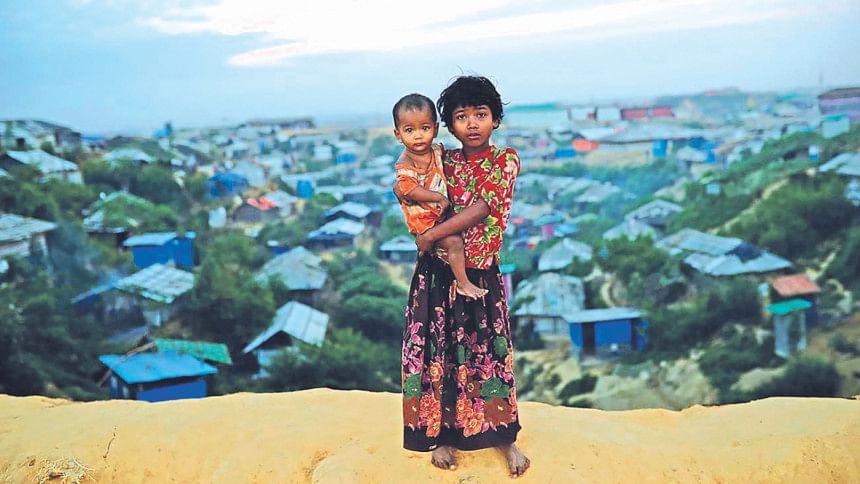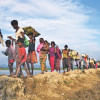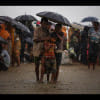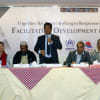Suu Kyi, her army commanders must be held accountable: Nobel laureates

Muhammad Yunus and seven other Nobel Peace laureates have asked Aung San Suu Kyi to publicly acknowledge crimes including genocide committed against Rohingya people in Myanmar.
"As Nobel Peace laureates, we call on Aung San Suu Kyi, a Nobel Peace Prize recipient, to publicly acknowledge the crimes, including genocide, committed against the Rohingya. We are deeply concerned that instead of condemning these crimes, Aung San Suu Kyi is actively denying that these atrocities even occurred," they said in the statement on Monday night.
The Gambia filed a lawsuit in November 2019 with the International Court of Justice – the United Nations' highest court – for atrocities committed against the Rohingya by Myanmar.
The proceedings of the case began today in the presence of Myanmar's State Counsellor Aung San Suu Kyi.
"We commend The Gambia for taking this step to hold Myanmar responsible for the genocide against the Rohingya and for advancing justice for the victims of these crimes," the statement said.
Just days after the International Court of Justice complaint was lodged, the International Criminal Court announced that it will be investigating crimes committed against the Rohingya.
The Rohingya, a Muslim and ethnic minority in Myanmar's Rakhine State, have suffered decades of systematic discrimination with the government of Myanmar not even recognising them as citizen.
In 2017, Myanmar's military, police and local militia burned Rohingya villages, systematically shot and killed Rohingya and committed acts of sexual violence and rape – used as a weapon of war – against women and girls.
Since August 2017, Bangladesh has received close to 700,000 Rohingya refugees with now close to one million Rohingya living in refugee camps in Bangladesh.
Many fear repatriation as there is no guarantee for their safety if returned to Myanmar.
"As people of peace, we urge Aung San Suu Kyi to address the systematic discrimination of the Rohingya in Rakhine State, and ensure the Rohingya's right to nationality, land ownership, freedom of movement and other fundamental rights," they said.
"We also urge her to exercise her personal and moral responsibility towards the Rohingya and acknowledge and condemn the genocide committed under her watch."
Aung San Suu Kyi must be held criminally accountable, along with her army commanders, for crimes committed, the statement said.
The signatories to the statement include Shirin Ebadi, Nobel Peace Laureate (2003) – Iran: Leymah Gbowee, Nobel Peace Laureate (2011) – Liberia; Tawakkol Karman, Nobel Peace Laureate (2011) – Yemen; Mairead Maguire, Nobel Peace Laureate, (1976) – Northern Ireland; Rigoberta Menchú Tum, Nobel Peace Laureate (1992) – Guatemala; Jody Williams, Nobel Peace Laureate (1997) – USA; Kailash Satyarthi, Nobel Peace Laureate (2014) – India and Muhammad Yunus, Nobel Peace Laureate (2006) — Bangladesh.
Three of the Nobel Peace laureates visited refugees in the Cox's Bazar in Bangladesh in February 2018 where they listened to the stories of over 100 Rohingya women.

 For all latest news, follow The Daily Star's Google News channel.
For all latest news, follow The Daily Star's Google News channel. 








Comments